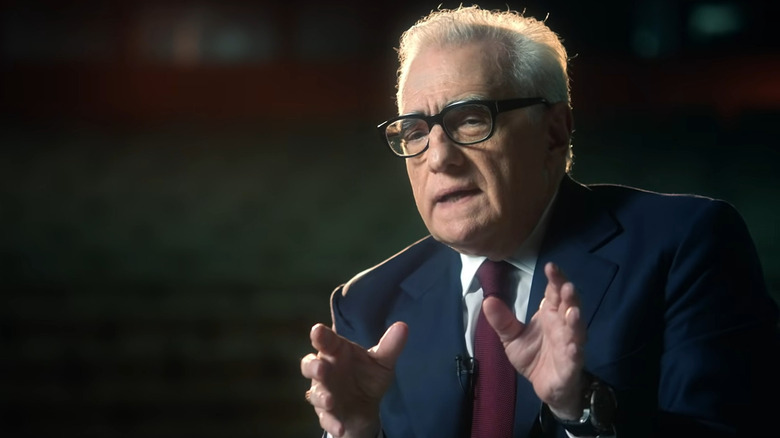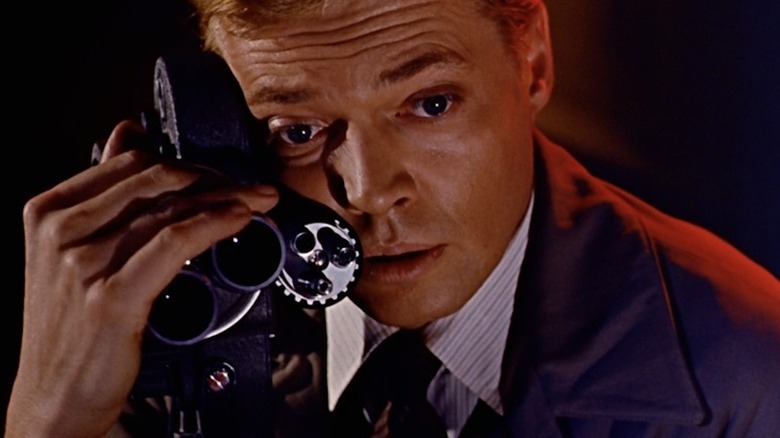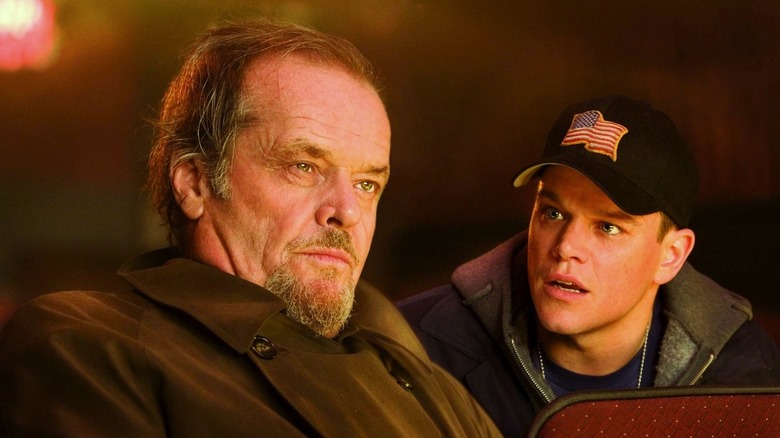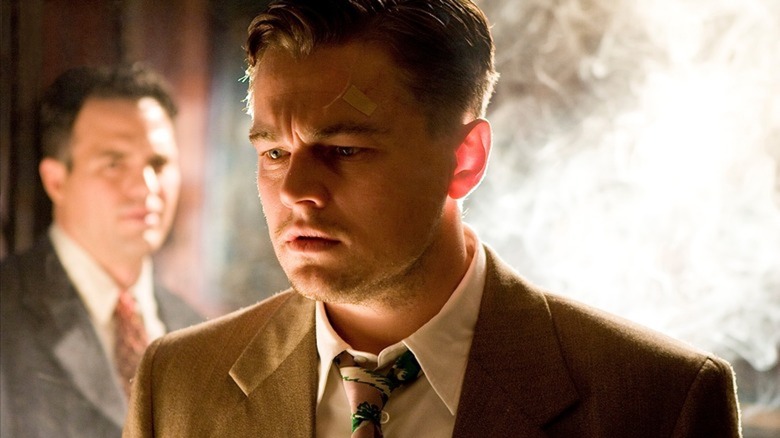Why Martin Scorsese Is Our Greatest Living Filmmaker
Martin Scorsese had just quit seminary for cinema when he caught wind of Michael Powell's "Peeping Tom." The 1960 film about a serial killer obsessed with capturing the dying moments of his female victims had provoked a furor in the filmmaker's native England. Critics responded with invective so harsh and condemnatory that Powell's career never fully recovered. The film was recut and transferred to black-and-white for its release in the U.S., where it played on a single screen in a dumpy Alphabet City theater in New York. "Peeping Tom" was about to be consigned to the scrap heap of film history.
Scorsese, who'd developed an affinity for Powell's films, wouldn't see "Peeping Tom" until a friend screened an uncut 35mm color print for him in 1970. Eight years later, after he'd knocked out critics and audiences alike with "Mean Streets," "Alice Doesn't Live Here Anymore," and "Taxi Driver," a small independent distributor called Corinth Films asked Scorsese if he could contribute $5,000 to ensure a modest re-release of Powell's little-seen masterpiece. The director gladly handed the money over, thereby launching a critical reappraisal that rescued the misunderstood movie and restored Powell's reputation as a master filmmaker.
Four years after Powell's death in 1990, I purchased a VHS copy of "Peeping Tom" at a Columbus, Ohio retailer called Media Play. That it was there and that I had a feverish desire to watch it had everything to do with Martin Scorsese.
An acquired taste worth acquiring
Scorsese was unlike his fellow '70s film brats — Francis Ford Coppola, Steven Spielberg, Brian De Palma, and George Lucas — in that he made movies that were decidedly unappealing to a precocious eight-year-old movie buff (a prized market, I know). De Palma's films were lurid, while Coppola turned the Vietnam War into a Wagnerian playground. I could vibe on their movies. "Taxi Driver" was brutally gory, a plus for a kid who guilted his mother into buying issues of Fangoria at the local grocery store, but there was a psychological sophistication and emotional aloofness that made it inaccessible on even a sensational level.
I sat through all 129 minutes of "Raging Bull," but mostly because I loved boxing and thought it might deliver a triumphal "Rocky" finale. This didn't happen, but the movie left a mark.
I didn't fall for a Scorsese movie until "After Hours." The pitch-black comedy starring Griffin Dunne as a meek word processor desperate to escape a hellish SoHo crucible was as otherworldly to a 12-year-old Midwesterner as David Lynch's "Dune," but the everything-will-go-wrong "Twilight Zone" vibe connected, as did the craft. I liked his wild push-ins and jagged editing style. He was anti-MTV in that regard. When Scorsese and his genius collaborator Thelma Schoonmaker made a cut, you felt it. Their edits were unnerving.
You felt safe with Coppola, Spielberg, Lucas, and even De Palma, but Scorsese kept you on edge. The worst could, and often did happen.
The Scorsese ascension
In 1997, I attended a Q&A between Scorsese and Roger Ebert during which the latter walked the former through his career to date. Much had changed for the filmmaker. 1990's "Goodfellas" had established him as the chief interpreter of mob life in America, so of course, he'd zagged to the hyper-stylized noir of "Cape Fear" and the sumptuous, late-19th-century tragedy of "The Age of Innocence." At the time, I'd found "Casino" to be a bit of play-the-hits, gangster wheel-spinning, but I'd also never been to Las Vegas. Even with what I then considered to be a minor misstep, I understood everyone in that lecture hall had bought a ticket to hear America's most well-known film critic banter with America's greatest living filmmaker.
I didn't question this. There were directors whose oeuvres I preferred, but Scorsese was our Fellini, Tarkovsky, Renoir, what-have-you.
Why didn't I question this? By this point, I'd matured enough to understand the arrested development of "Mean Streets," the weary wisdom of "Alice Doesn't Live Here Anymore," and the horrifying alienation of "Taxi Driver." Also, Scorsese had reached a level of craftsmanship where every new movie was as much of an event as a new Prince album. The only filmmaker close to Scorsese in this regard in the 1990s was Spike Lee. The tracking shots, the perfect needle-drop cues, and the uptempo cutting (which found a new, laid-back groove in 1997's "Kundun") were more powerful than any available narcotic.
The Scorsese education
Scorsese's 21st century got off to a rough start with "Gangs of New York," a passion project that probably should've been made two decades earlier. It's a sporadically brilliant film that stalls out dramatically when the focus drifts to Leonardo DiCaprio and Cameron Diaz. "The Aviator" is a handsomely mounted biopic, but it wasn't until Scorsese strapped on the brass knuckles and played to the cheap seats with "The Departed" that he rediscovered his muse. That's how he won his first Oscar for Best Director.
His follow-up film, "Shutter Island," a psychological thriller from Bostonian bard Dennis Lehane, is vastly superior. It blends the terror of Samuel Fuller's "Shock Corridor" with the tragedy of Michael Powell and Emeric Pressburger's "The Red Shoes." The Powell influence hit me hard. I thought back to plopping down 20 bucks for a VHS copy of "Peeping Tom" as a junior in college and realized Scorsese was paying off my education.
This education continues.
Scorsese's work with the World Cinema Project is focused on the restoration and promotion of underseen masterpieces from directors like Ousmane Sembène, Edward Yang, and Shadi Abdel Salam. A subscription to the Criterion Channel will give you access to these movies, and trust me, you'll be surprised how immediately engaging these films can be.
No one has done more to deepen my love and appreciation of cinema than Martin Scorsese. My mind reels when I think about every movie he put me on: to name a few, "Force of Evil," "Umberto D.," "A Face in the Crowd," "Senso," and "Detour." Every so often, someone I follow on Twitter discovers Powell and Pressburger's "A Matter of Life and Death," and my heart swells.
Scorsese did this. No one can touch him.



